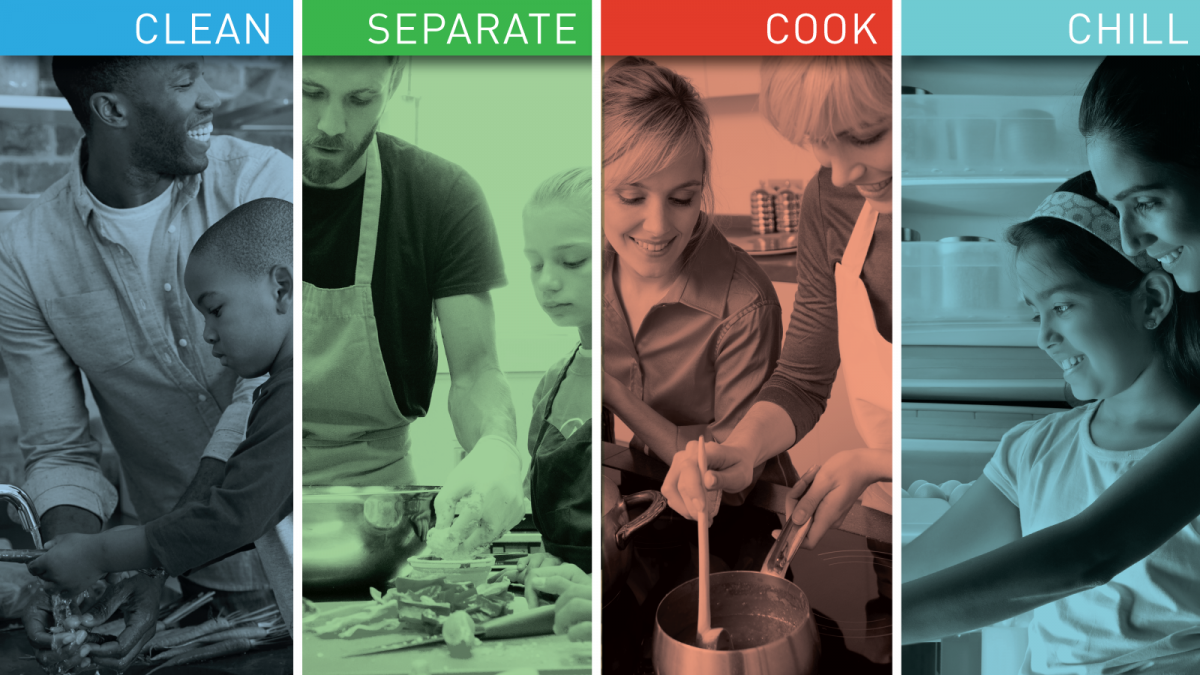Tips for Safe Food Handling

September is National Food Safety Education Month. The Federal government estimates that there are about 48 million cases of food borne illness annually – that’s about 1 in 6 Americans each year. Each year, these illnesses result in an estimated 128,000 hospitalizations and 3,000 deaths. Following simple food safety tips can help lower your chance of getting sick.
Throughout the month we encorage you to focus on key illness prevention steps, such as avoiding cross-contamination in your kitchen. Raw meat, poultry, seafood, and eggs can spread germs to ready-to-eat foods, like salads or food that is already cooked. These germs include Campylobacter, Salmonella, Clostridium perfringens, and E. coli. They can make people sick and even lead to hospitalization and death in serious cases.
The key to avoiding cross-contamination is to keep raw meat, poultry, seafood, and eggs separate from foods that won’t be cooked before you eat them (ready-to-eat foods) when grocery shopping and preparing food in the kitchen.
- Separate raw meat, poultry, seafood, and eggs from other food in shopping cart.
- Keep raw meat, poultry, seafood, and eggs separate from all other foods in the refrigerator.
- Do not wash raw chicken or turkey.
- Use one cutting board or plate for raw meat, poultry, and seafood and a separate cutting board or plate for produce, bread, and other foods that won’t be cooked (ready-to-eat foods).
- If you only have one cutting board, cut produce, bread and other ready-to-eat foods first then wash cutting board with soap and hot water before cutting raw meat, poultry or seafood on it.
- Wash hands for at least 20 seconds with soap and water after touching raw meat, poultry, seafood, or eggs.
- Wash your utensils, cutting boards, and countertops with hot, soapy water after preparing raw meat, poultry, seafood, or eggs.
- If you marinate raw meat, poultry, or seafood and want to reuse that marinade on the food after it is cooked, bring marinade to a boil first.
- Keep cooked meat, poultry, seafood, and eggs on a separate plate from raw meat, poultry, seafood and eggs.
Below are additional things you can do to protect yourself and your family. Let’s make sure everyone knows how to protect themselves and their loved ones from foodborne illness.
As you prepare and handle food, follow these four steps:
- Clean: Wash your hands, utensils, and surfaces often when you cook.
- Separate: Raw meat, poultry, seafood, and eggs can spread germs. Separate them from cooked food and fresh produce.
- Cook: Use a food thermometer to make sure foods are cooked to an internal temperature that kills germs.
- Chill: Refrigerate perishable foods and leftovers within two hours. Chill within one hour if it’s above 90°F.
Find out more tips for safe food handling here.
If you have any food handling questions, feel free to reach out to Addison's Environmental Health Division by calling 972-450-2880 or envhealth@addisontx.gov.
